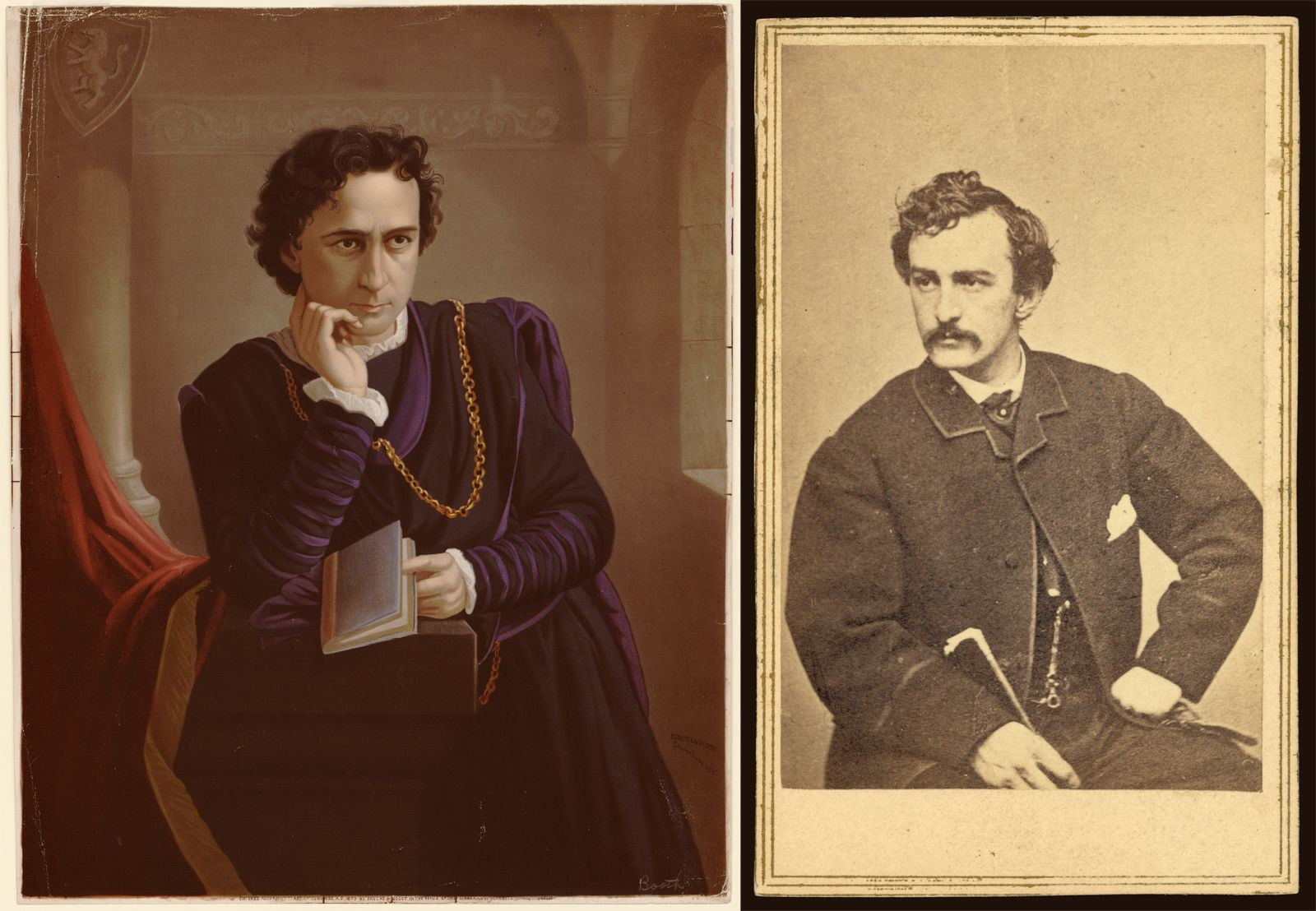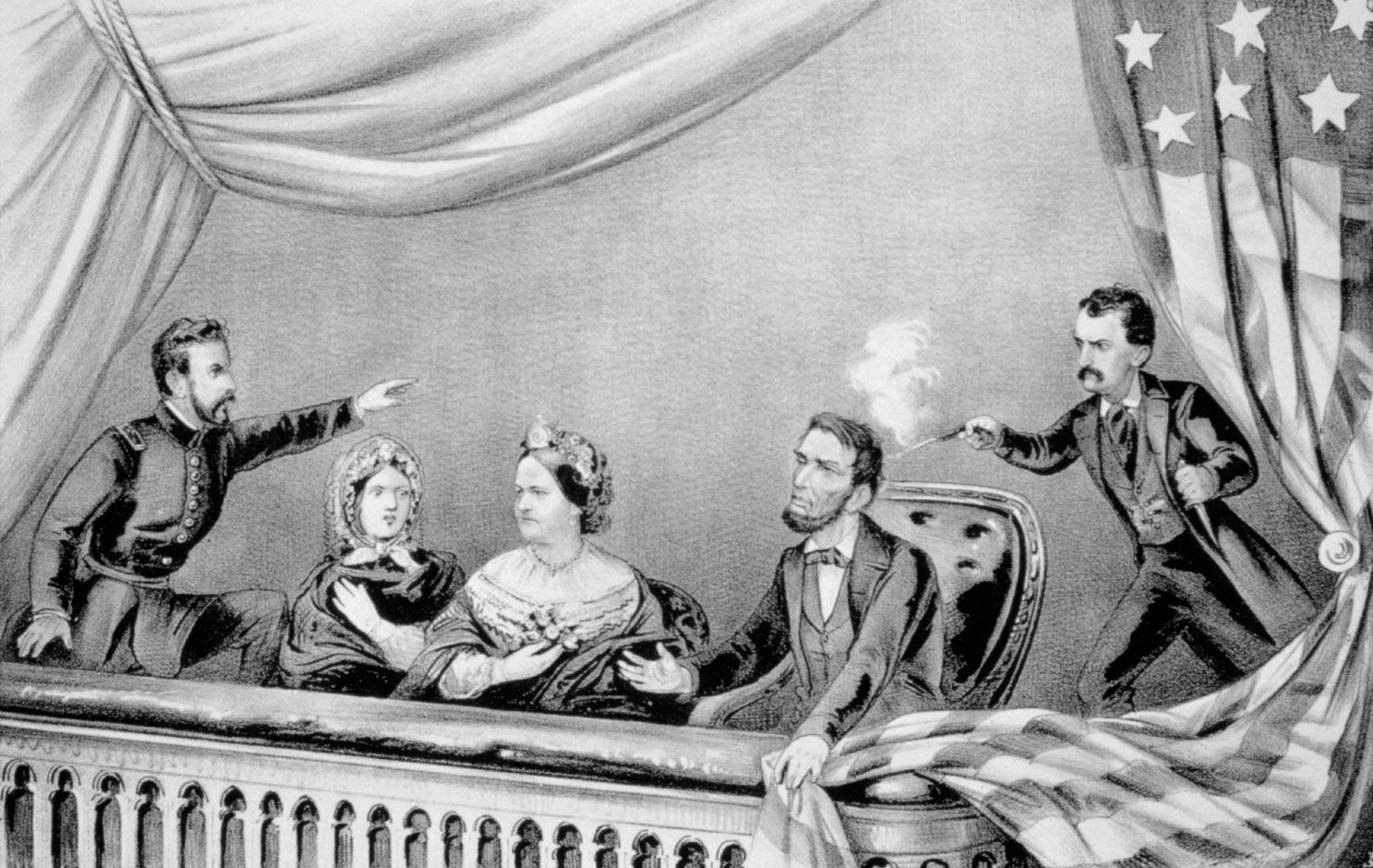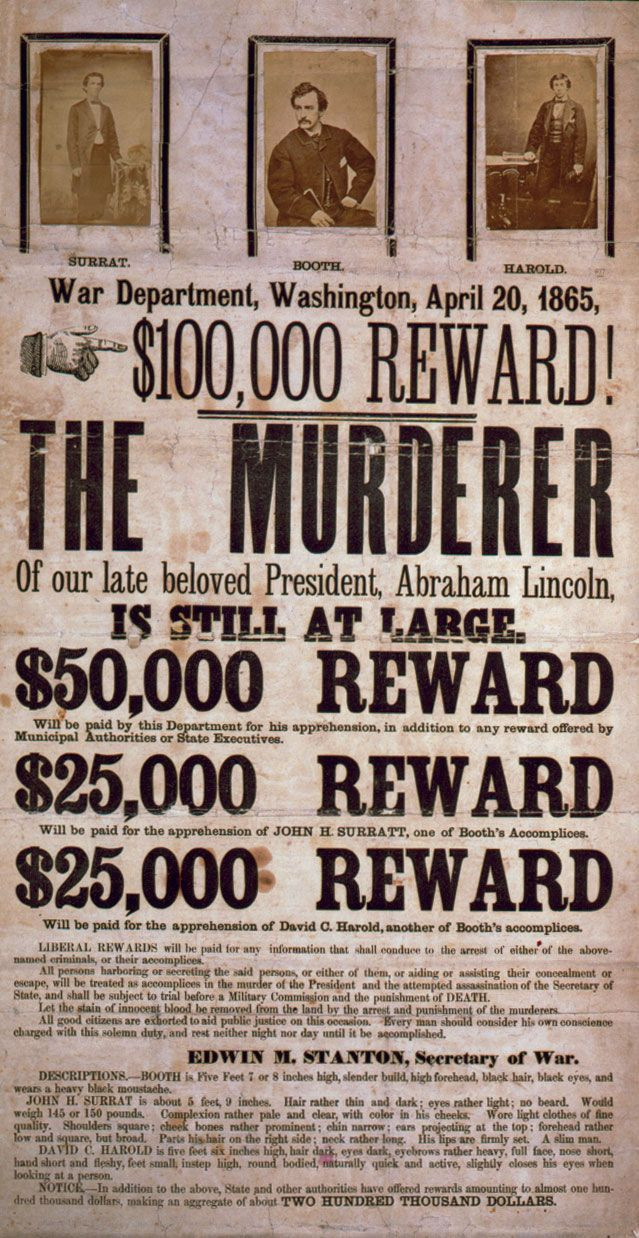John Wilkes Booth, born on May 10, 1838, near Bel Air, Maryland, and deceased near Port Royal, Virginia, on April 26, 1865, remains a pivotal yet infamous figure in American history. Hailing from a distinguished 19th-century American acting dynasty, Booth is indelibly etched in historical memory as the assassin of U.S. President Abraham Lincoln. His act, committed in the waning days of the Civil War, dramatically altered the course of Reconstruction and cemented his name in the annals of American tragedy.
 John Wilkes and Edwin Booth, Prominent 19th-Century Actors
John Wilkes and Edwin Booth, Prominent 19th-Century Actors
Born into a family synonymous with theatrical excellence, John Wilkes Booth was the ninth of ten children of the celebrated actor Junius Brutus Booth. From an early age, John displayed a natural aptitude for the stage, hinting at the thespian brilliance that ran in his bloodline. However, alongside his theatrical promise, Booth also manifested a volatile emotional landscape and a pronounced egocentricity. This complex personality trait made it particularly challenging for him to reconcile with the towering success of his brother, Edwin Booth, who ascended to become the preeminent actor of their era. The shadow of his brother’s accomplishments seemed to fuel a simmering resentment within John, contributing to his already turbulent inner world.
Booth’s initial forays into professional acting were met with lukewarm reception. His theatrical debut in Baltimore in 1856 was largely unsuccessful, leading him to take on minor roles in Philadelphia. It wasn’t until 1859 that his career began to gain traction when he joined a Shakespearean stock company in Richmond, Virginia. This move proved transformative. In 1860, a tour through the Deep South garnered him widespread acclaim, establishing him as a sought-after actor. Even amidst the tumultuous backdrop of the American Civil War, Booth’s popularity remained undiminished. He continued to command audiences, even taking on leading roles such as Richard III in William Shakespeare’s renowned play during a New York City production in 1862.
Despite his flourishing acting career, John Wilkes Booth harbored fervent political beliefs that sharply contrasted with the prevailing Union sentiment. A passionate advocate for the Southern Confederacy, Booth was an outspoken proponent of slavery and held a deep-seated animosity towards President Abraham Lincoln. His commitment to the Confederate cause went beyond mere rhetoric; he actively volunteered in the Richmond militia that participated in the execution of abolitionist John Brown in 1859. By the autumn of 1864, Booth’s political extremism had solidified into a dangerous plot: the abduction of President Lincoln.
To execute his audacious scheme, Booth enlisted a network of coconspirators. Throughout the winter of 1864-65, this group convened frequently in Washington, D.C., meticulously devising various plans to kidnap the President. However, their initial abduction attempts repeatedly faltered. Frustration mounted, and Booth’s intentions took a darker, more sinister turn. He resolved to eliminate President Lincoln and other key Union officers, regardless of the personal cost or societal repercussions.
On the fateful morning of April 14, 1865, Booth’s plans crystallized when he learned of President Lincoln’s scheduled attendance at an evening performance of the comedy “Our American Cousin” at Ford’s Theatre in Washington, D.C. Seizing this opportunity, Booth swiftly mobilized his conspirators, assigning each a specific role in a coordinated attack that extended beyond Lincoln himself. The plot included the intended murder of Secretary of State William Seward, aiming to decapitate the Union leadership. Around 6:00 pm, Booth gained entry into the deserted Ford’s Theatre. Demonstrating a chilling level of premeditation, he tampered with the door to the presidential box, ensuring it could be barricaded from within, effectively trapping his target. He returned later, during the play’s third act, finding Lincoln and his guests with minimal security.
 Lithograph depicting the Assassination of President Lincoln at Ford's Theatre by John Wilkes Booth
Lithograph depicting the Assassination of President Lincoln at Ford's Theatre by John Wilkes Booth
Entering the presidential box, Booth drew a .44-caliber derringer pistol. With calculated precision, he fired a single shot into the back of President Lincoln’s head. A brief struggle ensued with Major Henry Rathbone, a Union officer and guest of the Lincolns in the box. Booth then vaulted over the balustrade, leaping onto the stage. Eyewitness accounts suggest he exclaimed “Sic semper tyrannis!” – the Virginia state motto meaning “Thus always to tyrants!” – or “The South is avenged!”, or possibly both, during his dramatic escape. The landing was harsh, resulting in a broken bone in his left leg, although some historians dispute the timing of this injury. Despite the fracture, Booth managed to flee through the alleyway to his waiting horse. While the simultaneous attempt on Secretary Seward’s life failed, President Lincoln succumbed to his injuries the following morning, passing away shortly after 7:00 am.
 Broadside offering reward for the capture of Lincoln assassination conspirators John Wilkes Booth, John Surratt, and David Herold
Broadside offering reward for the capture of Lincoln assassination conspirators John Wilkes Booth, John Surratt, and David Herold
In the aftermath of the assassination, a massive manhunt was launched to apprehend Booth and his accomplices. A substantial reward of $100,000 was offered for his capture, intensifying the nationwide pursuit. Booth, joined by conspirator David Herold, initially fled through Maryland. Seeking medical aid for his injured leg, Booth sought out Dr. Samuel A. Mudd, a Maryland physician who would later face conviction for conspiracy in the assassination plot. For days, Booth and Herold remained hidden in a dense thicket near Zekiah Swamp in Maryland. On April 26, federal troops cornered them at a farm in Virginia, south of the Rappahannock River. Booth was discovered concealed in a tobacco barn. Herold surrendered, but Booth refused to yield. In the ensuing confrontation, Booth was shot – whether by a soldier or self-inflicted remains debated. He was carried from the barn to the farmhouse porch, where he ultimately died. A doctor who had previously operated on Booth identified the body. Despite lingering conspiracy theories questioning his demise, historical evidence firmly supports that John Wilkes Booth, the actor who assassinated President Abraham Lincoln, met his end in that Virginia barn. His body was secretly buried, later reinterred four years after his death, closing a dark chapter in American history.
